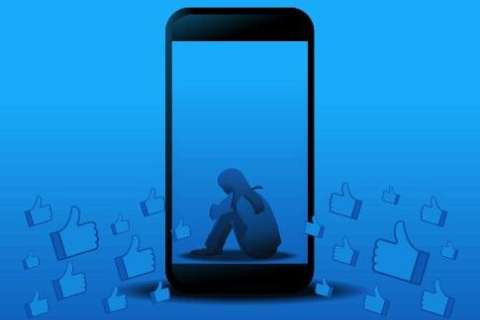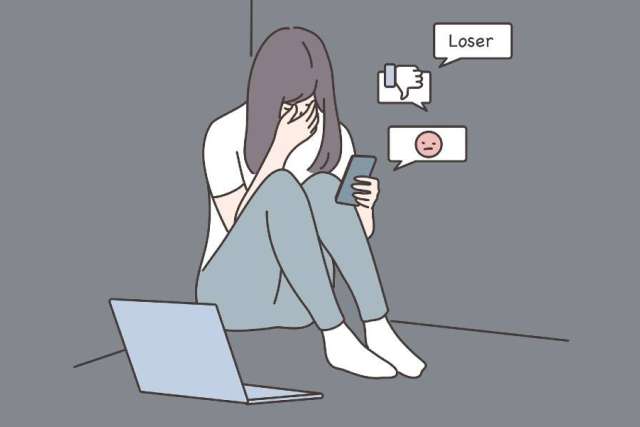Since social media took off as a popular phenomenon in the early 2000s, the rate of adolescent depression has significantly spiked. Between 2005 and 2017, depression among young people reportedly went up 52%.
April Thames, PhD, professor of psychiatry and clinical neuropsychologist in the Department of Psychiatry and Biobehavioral Sciences and the UCLA Brain Research Institute, attributes the sharp increase to a peer-induced quest to be “perfect” — or to at least appear that way.
“A large part of the mental distress is around the pressure for perfection,” Dr. Thames said. “When you see people on these platforms constantly putting up in-your-face posts of their fabulous trips and beautiful filtered pictures, it creates a false standard for the youth, who are still trying to figure out their identity and where they fit in.”

Young brains are more susceptible to negative input
What is it about social media that triggers negative responses?
It comes down to a particular area of the brain, said Dr. Thames.
“We know that the brain, particularly the prefrontal cortex, does not fully develop until around the age of 20,” she said.
This is the region of the brain that is associated with moderating social behavior, decision-making and personality expression.
Because these behaviors have not yet fully developed in the young brain, many adolescents and young adults respond to stimuli they see on social media using other areas of the brain that are more emotionally reactive. This, said Dr. Thames, can lead to anxiety or severe depression when they encounter something on social media they don’t like or that is negatively directed toward them.
Help Shape the Future of Mental Health by Joining the UCLA Mental Health Research Registry
Likes, dislikes and false realities
Dr. Thames believes that the ongoing flood of social media will continue to make the problem worse, and that mental health professionals will be challenged to address the issue.
“I think the mental health of Americans is going to continue to deteriorate,” Dr. Thames said. “I’m not trying to be a pessimist, but we’re seeing the percentages rise with youth-related depression and anxiety, and much of it is due to social media. Our profession must start to look carefully at the different ways we offer mental health services.”
The problem has become so great that institutions outside of the mental health field are looking for ways to address the issue. Recently, for example, Seattle Public Schools filed a 91-page lawsuit against the big-tech companies responsible for creating Instagram, Facebook and YouTube, among others, to hold them accountable for the mental health crisis among youth.
Fixation on “likes” and, also, negative comments online are among the driving factors contributing to the crisis, said Dr. Thames.
“Unfortunately, we tend to remember negative feedback more than we do positive, and on social media, those remarks linger where everybody can see them,” she said.
Accepting responsibility and changing perceptions
Social media can distort how people view themselves, Dr. Thames explained. Sadly, many youths wrap their identity within the cloak of their standing on social media.
One way to change this would be for social media platforms to create more spaces for teens and young adults to receive encouragement and a positive feedback.
“What I would like to see is social media form a place for youth to have very positive self-affirming and purposeful reflection,” said Dr. Thames.
“Because the brains of young people are not yet fully developed, they are unable to see the positive outcomes at the end of all they are going through,” she continues. “It’s very important that we create scenarios where they can see the possibilities for who they can be.”




